
The tech industry has once again been reminded of the dangers of over-centralization and reliance on a single node after a failed update from cybersecurity giant Cloudstrike wreaked havoc on systems around the world, bringing down corporate logins, banking systems, flights and countless other systems that rely on Windows.
Even though it turned out not to be the cyberattack initially feared, the stock market still performed poorly, with the Nasdaq down 1% on the day and Cloudstrike opening down 15%. The stock market had just reached a new all-time high before the latest US election turmoil, and then fell into trouble.

As IT likes to say, “Have you ever tried a reboot?” - a fresh start seems to be the panacea for everything that ails us (including the democratic process). Although the timing was quite sudden, President Biden finally dropped out of the race and Vice President Harris took over. However, former President Obama and other party members have not yet clearly supported Harris, and may prefer to let the Democratic National Convention next month decide, which adds more uncertainty to an already crazy election.
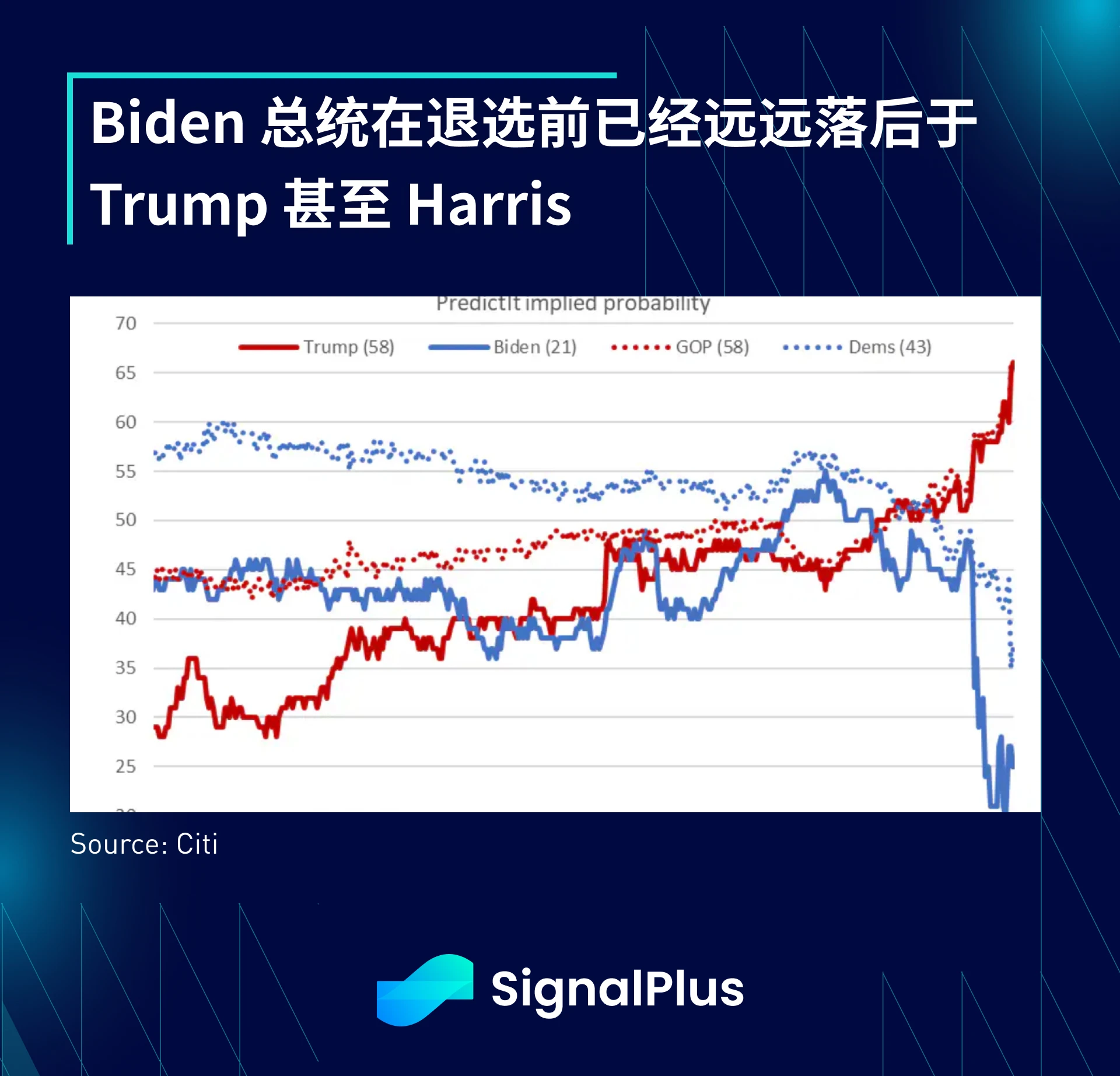
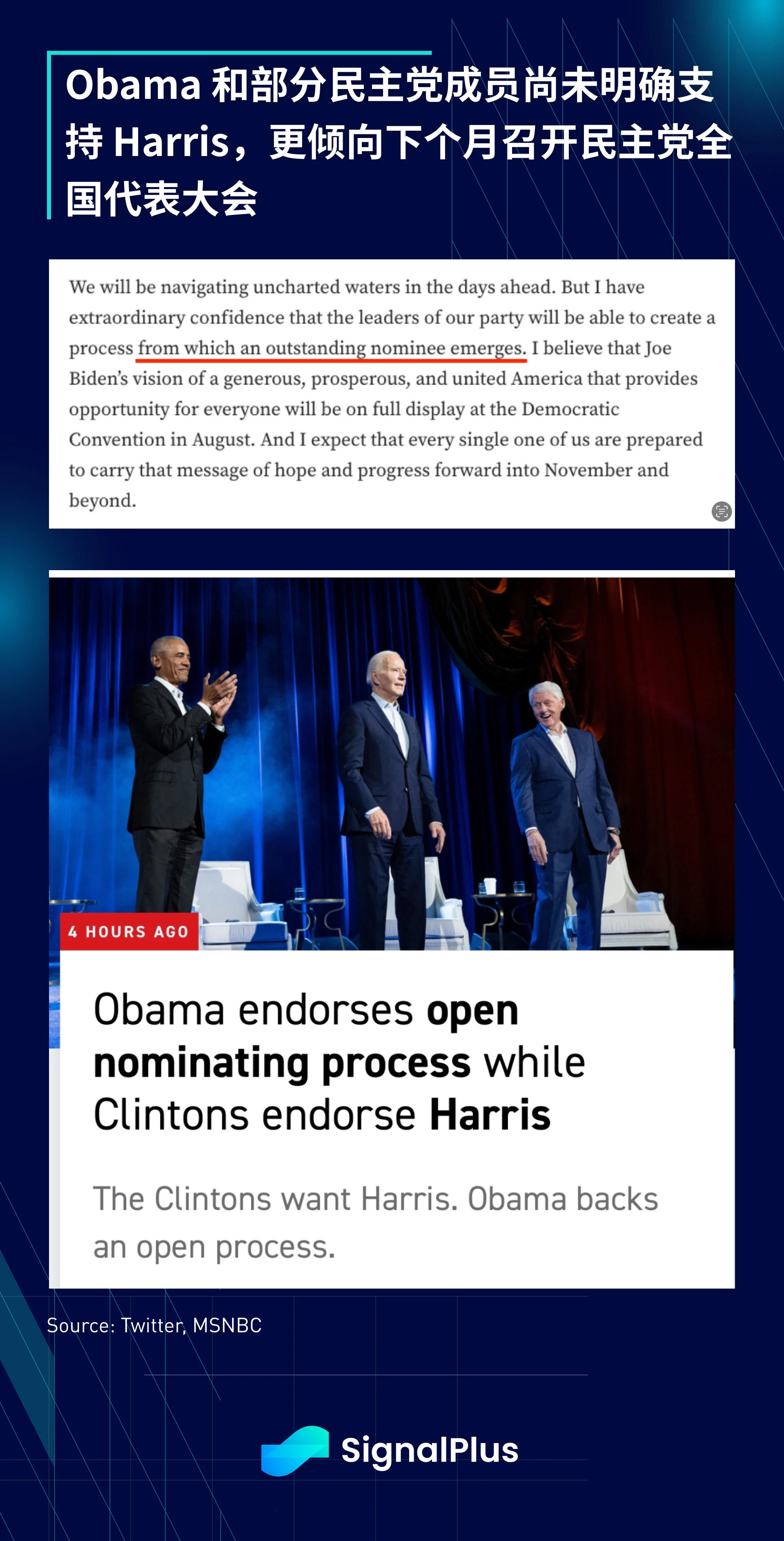
While the stock market is generally optimistic about Trumps second term, chip stocks have begun to fall along with long-dated U.S. Treasuries (due to debt-backed stimulus plans). In an interview with Bloomberg, Trump expressed strong dissatisfaction with the Taiwan issue:
They [Taiwan] took all our chip business, theyre very rich, America is like an insurance company, why would we do this? -- Trump
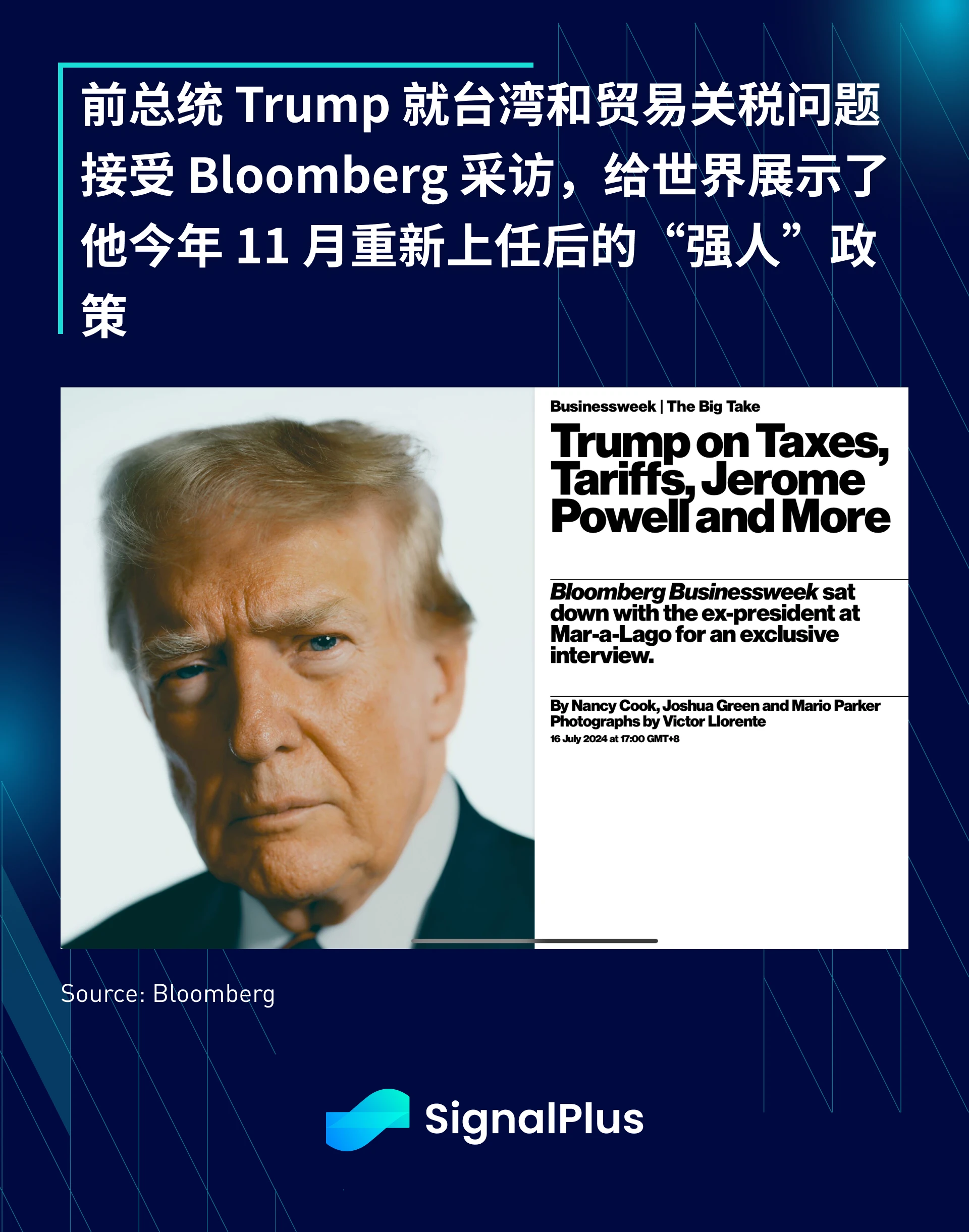
To make matters worse, even the Democrats are considering whether to impose stricter chip sanctions on China. Affected by this, TSMC fell about 4% after the news. The semiconductor sector fell about 7% last week, with the latter falling below the 50-day moving average and the short-term stochastic indicator entering the bearish zone.
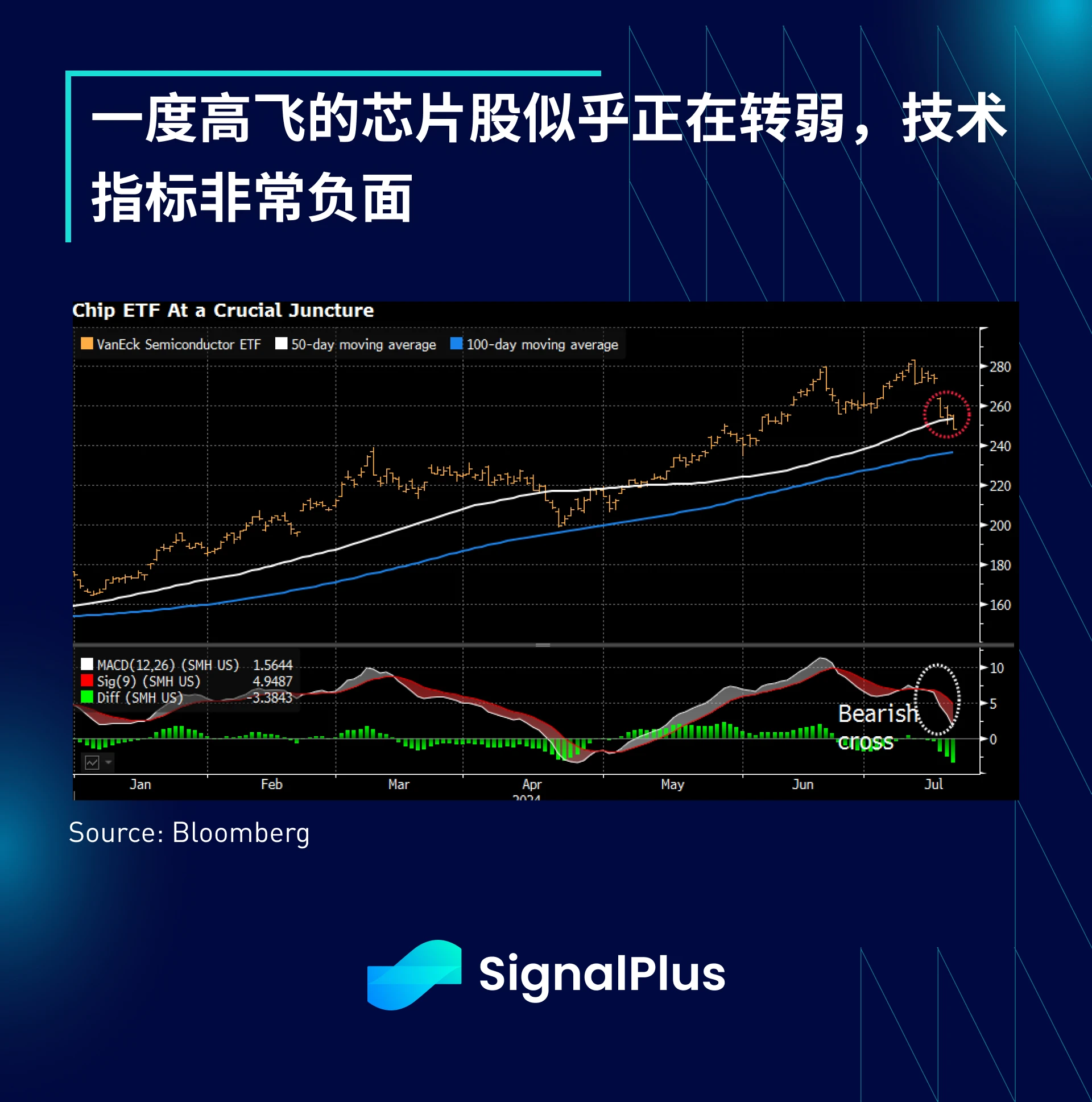
How the U.S. market will react to the news this past weekend remains to be seen, but last Friday was undoubtedly a big sell-off day, with all major asset classes falling except BTC. As optimism about global economic growth faded, stocks, bonds, gold, crude oil, etc. all suffered losses, and the commodity index closed at its lowest point since March.
According to Bloomberg data, only 4% of trading days in the past 40 years have seen simultaneous sell-offs in major U.S. stock indexes, crude oil, gold and U.S. Treasuries, and only 0.5% of trading days have seen this happen twice in a row. The days of seeing this happen three consecutive days are almost non-existent (0.03%), and have all occurred during the period of hawkish Federal Reserve in the past.
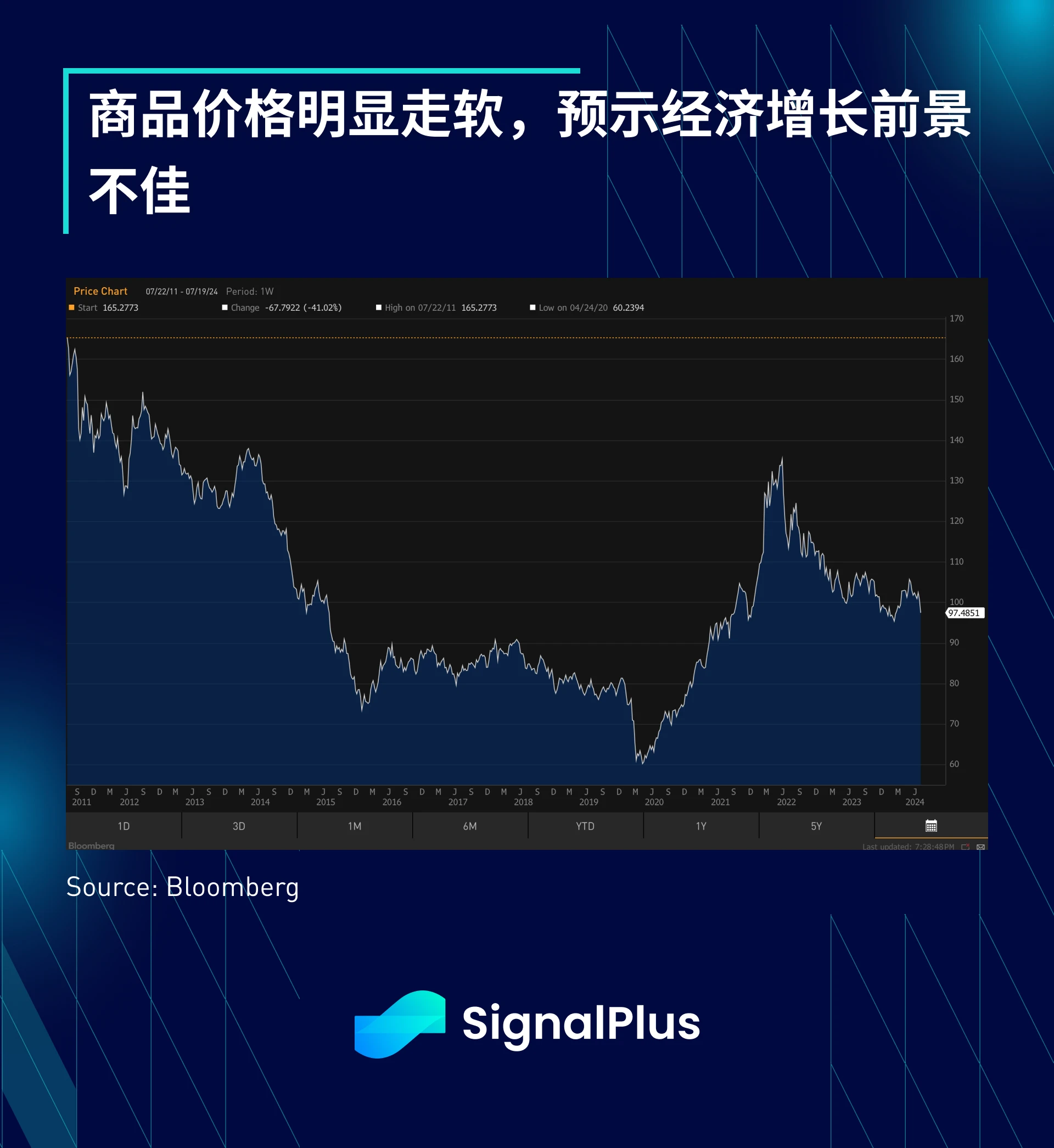
The downturn is not limited to the United States. Chinas Third Plenary Session did not show any significant change in direction amid the continued economic downturn, and the lack of earth-shaking stimulus measures failed to excite investors, and stock markets in Greater China fell significantly.
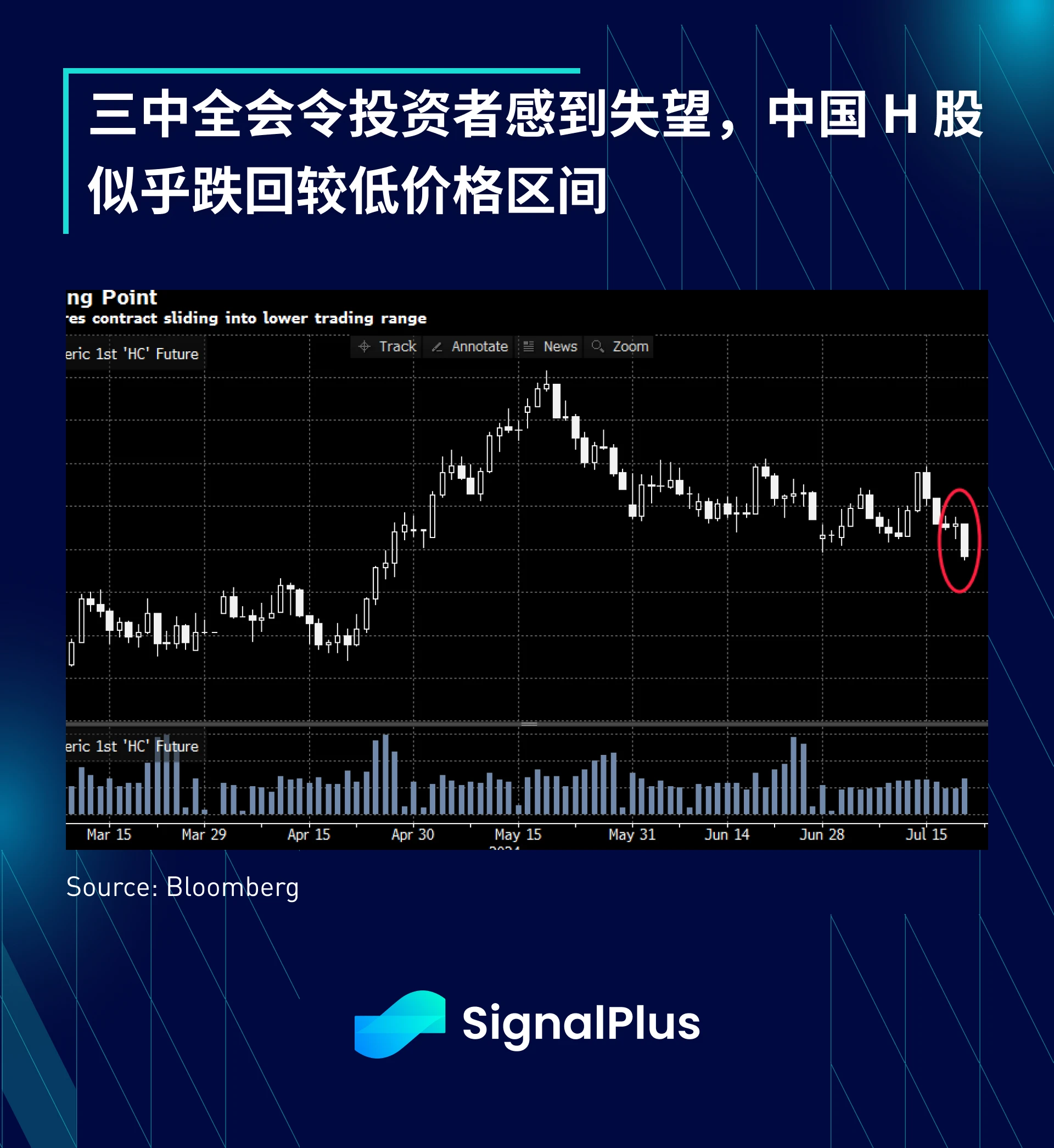
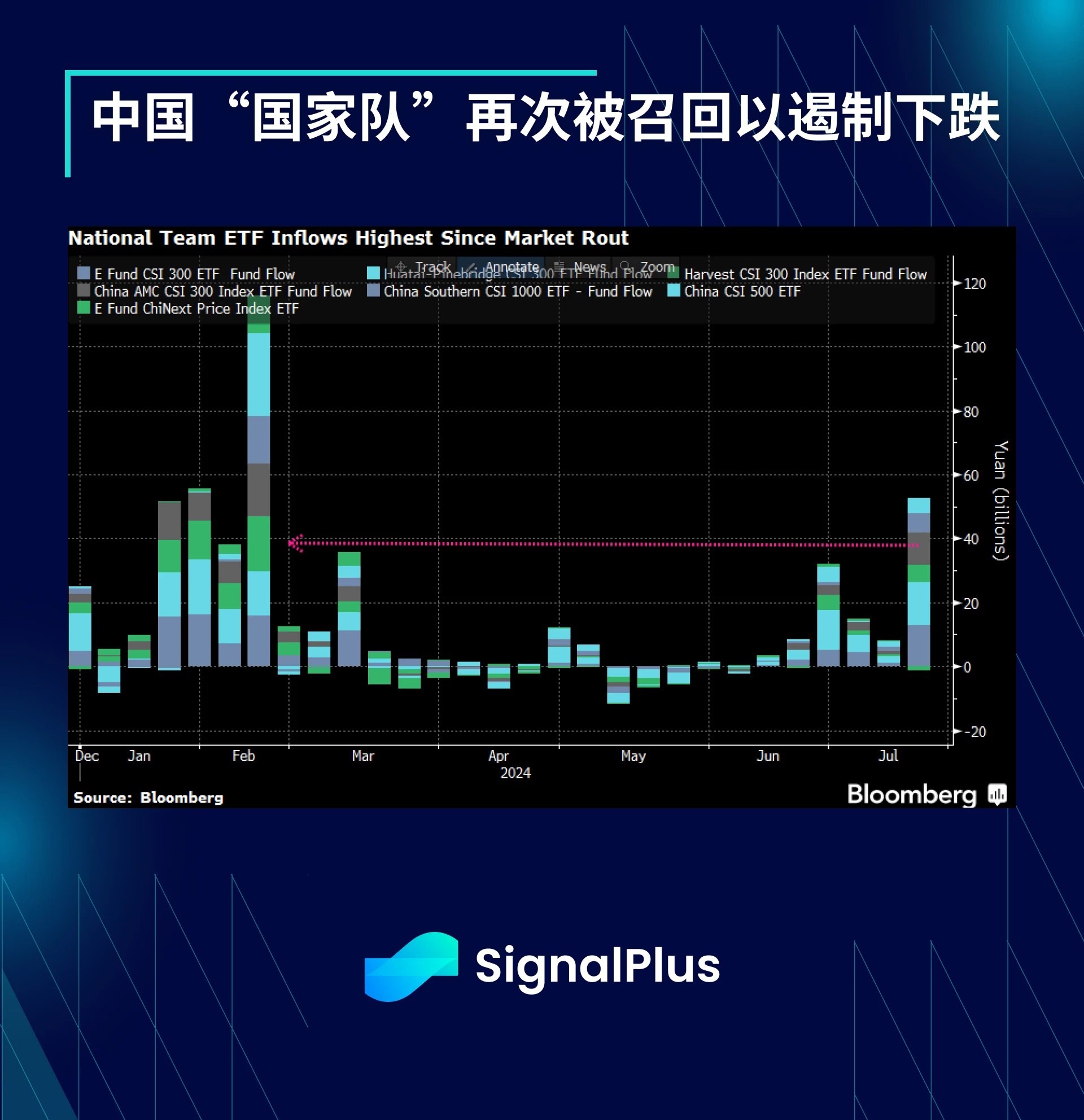
The threat of rising U.S. tariffs will continue to trouble investors, with Goldman Sachs saying a 10% tariff could trigger trade war retaliation, causing U.S. inflation to rise above 1% and potentially forcing the Federal Reserve to shift back toward consecutive rate hikes.
To make matters worse, in addition to further trade wars and debt-backed stimulus, Trump has made it clear that he prefers a weaker dollar, especially relative to China and Japan, emphasizing his desire to bring manufacturing back to the United States.
I think manufacturing is important, and as you can see, we have a currency problem, and when I was president, I had a very intense battle with President Xi and Shinzo Abe... We have a big currency problem, and right now the situation of a strong dollar, a weak yen, and a weak renminbi is quite serious. -- Trump
Investors are generally bearish on bonds for Trumps second term. How will inflationary pressures be dealt with against the backdrop of increased fiscal spending/weaker dollar/rising trade prices/increased bond issuance?
Worryingly, even though the supply chain congestion caused by the pandemic has ended, ocean freight costs are already rising, with the Baltic Dry Index rising to the 83rd percentile of the past decade.
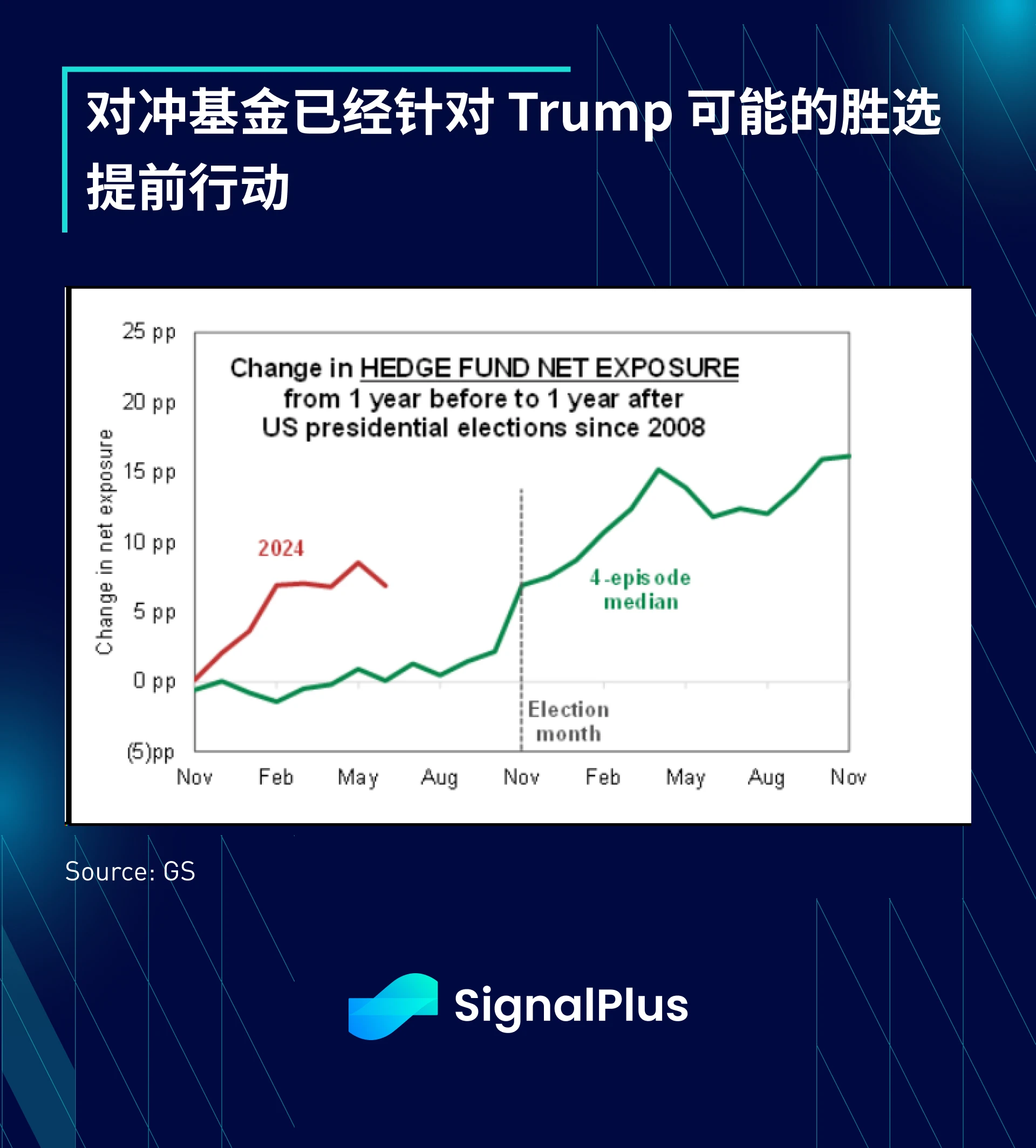
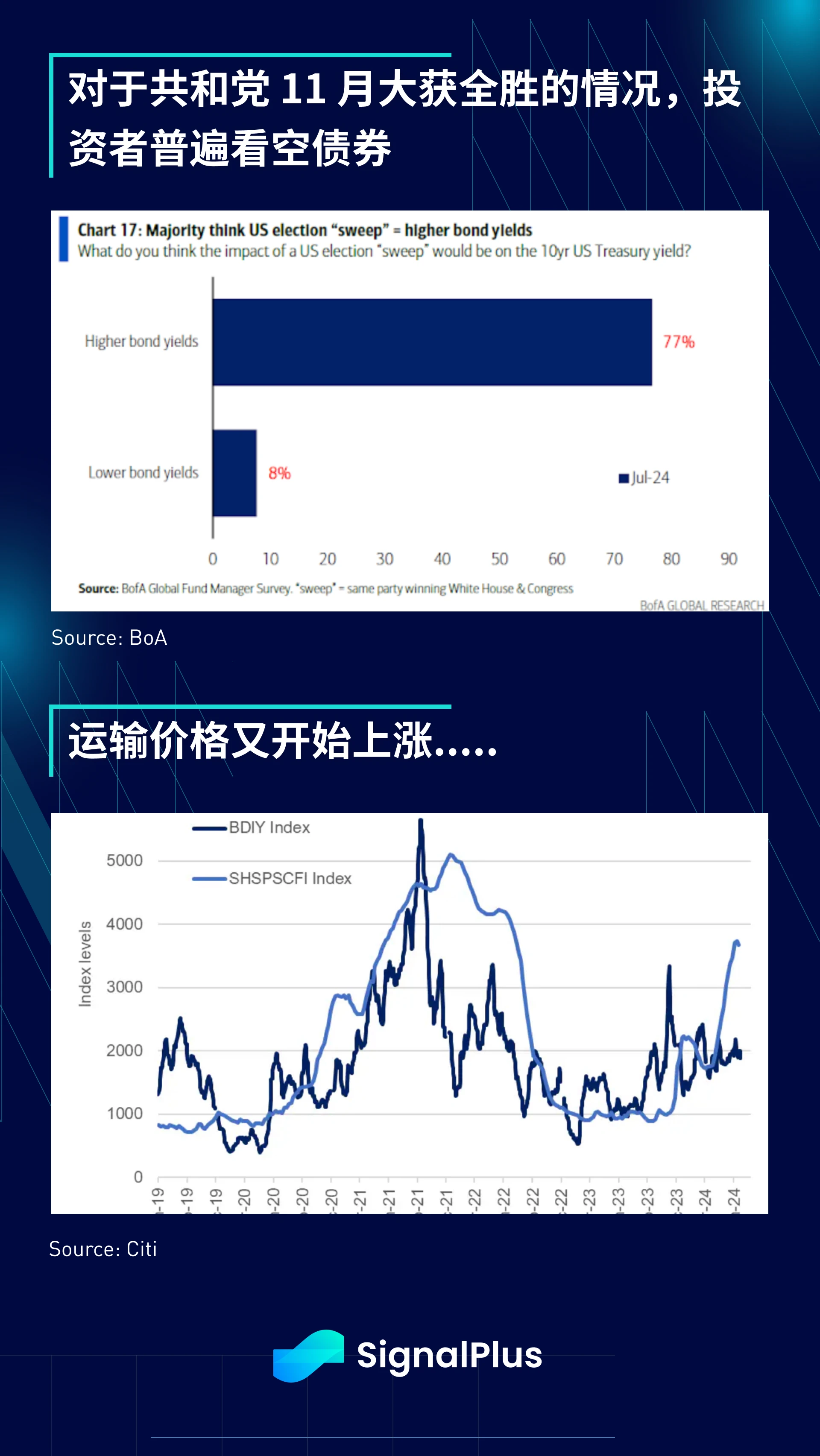
The situation in the US stock market has not changed much. Judging from the forward P/E ratio (>21.5 times) and most metrics, stock prices are quite expensive. The stock market is overbought and has been for several weeks. US households stock allocation is also at an all-time high, even higher than the Internet bubble in 1999. At the same time, AI stock earnings growth is expected to slow down in the next few quarters, but will continue to drive the majority of the overall indexs profits.
So we are still in a very uncomfortable position where investors are forced into equities late in the economic cycle, while geopolitics keeps getting worse, valuations keep rising, and the risk-reward ratio keeps getting worse. We have always stressed that equities are (at best) a concurrent indicator and are by no means forward-looking, however, the macro graveyard is also full of equity shorts who have suffered huge losses trying to short equities (including in 2023-24), so brace yourself for a very wild few months ahead with the Democratic nomination, the first Fed rate cut, escalating trade wars, and the US election.

The cryptocurrency space is changing dramatically. A few weeks ago, the price of BTC plummeted to $54,000 due to government selling, putting the entire bull market in danger. However, the Trump camp, which supports cryptocurrencies, completely reversed the situation. The price of BTC quickly rebounded to $68,000 amid a severe shortage of investor positions.
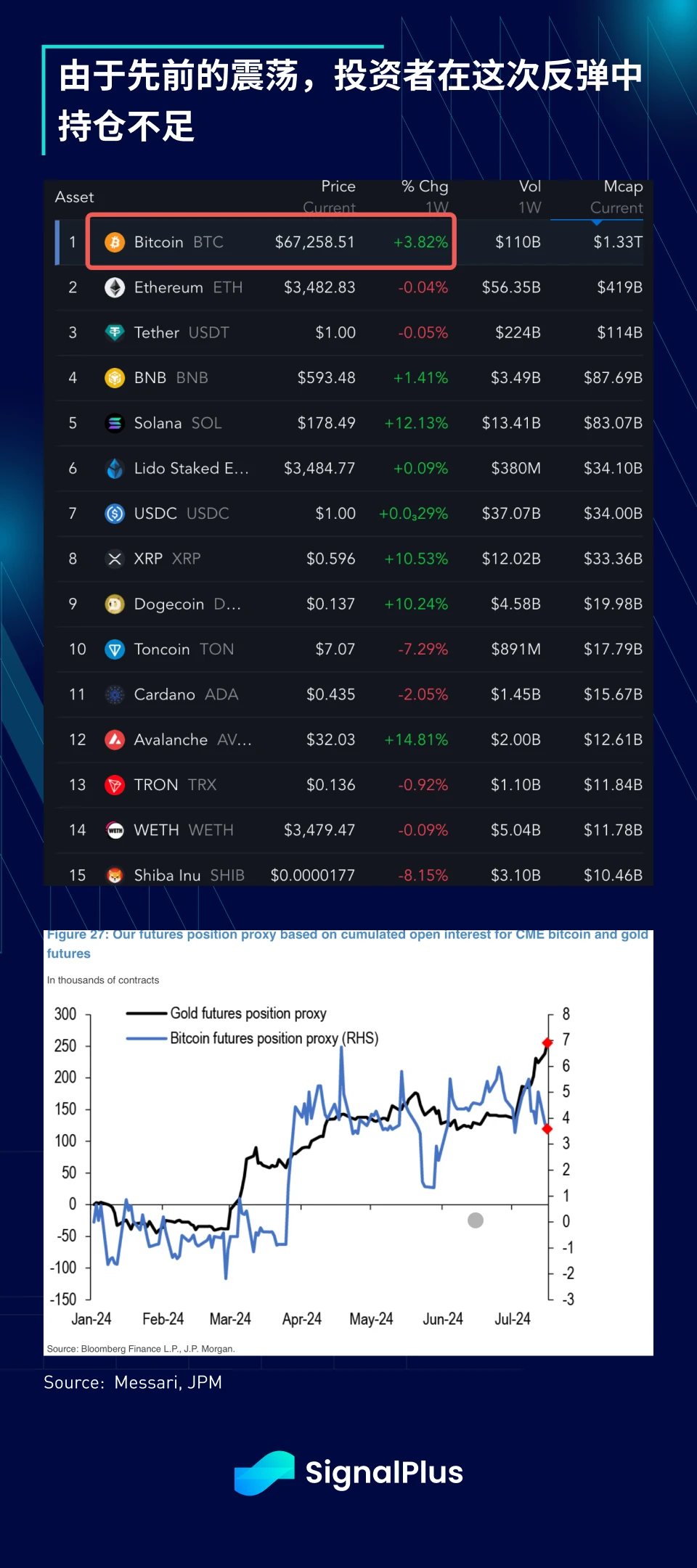
A flurry of bullish (opportunistic?) comments from the Trump campaign, U.S. Senators, Blackrock’s Larry Fink, and even JPM’s Jaime Dimon have dramatically changed the crypto narrative in the U.S., and it’s a safe bet that TradFi’s influence in the crypto space will only continue to grow, regardless of who’s in the White House for the next four years.
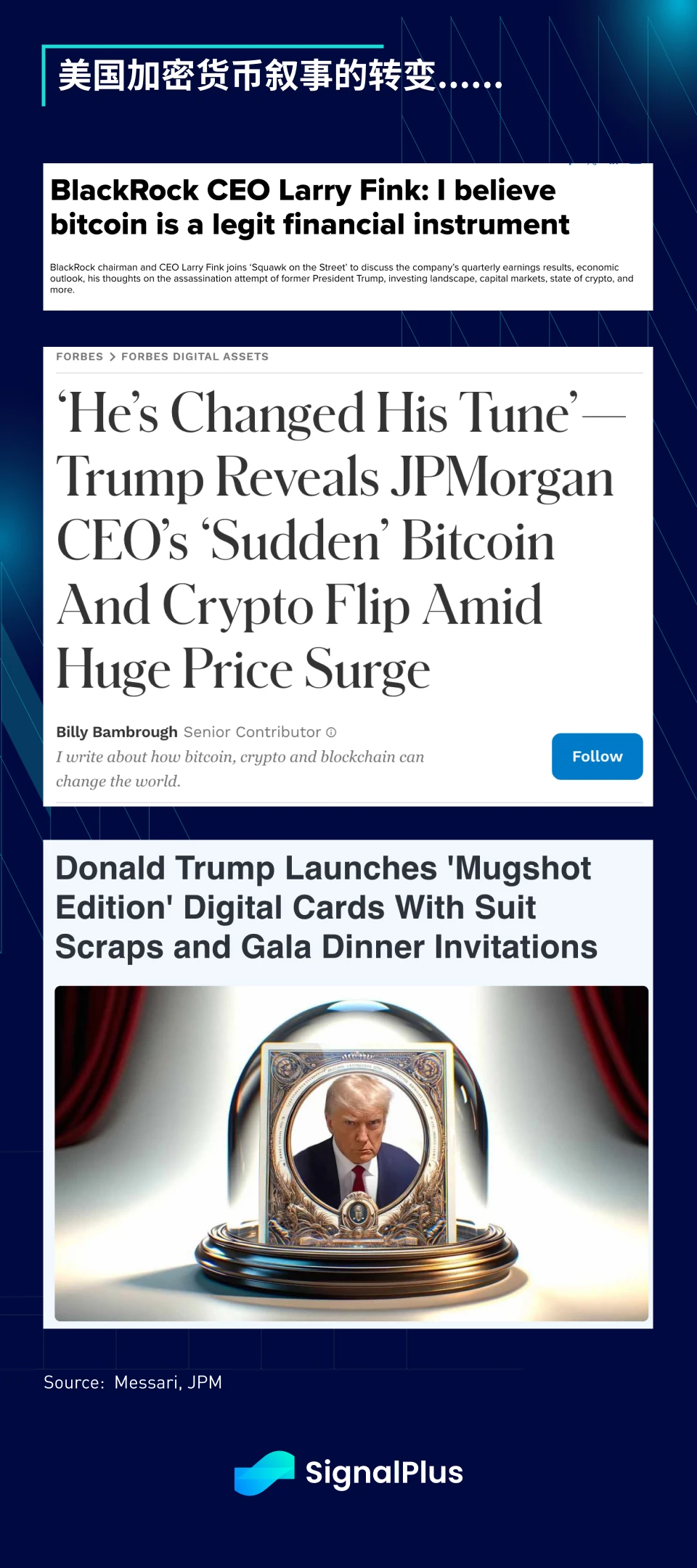
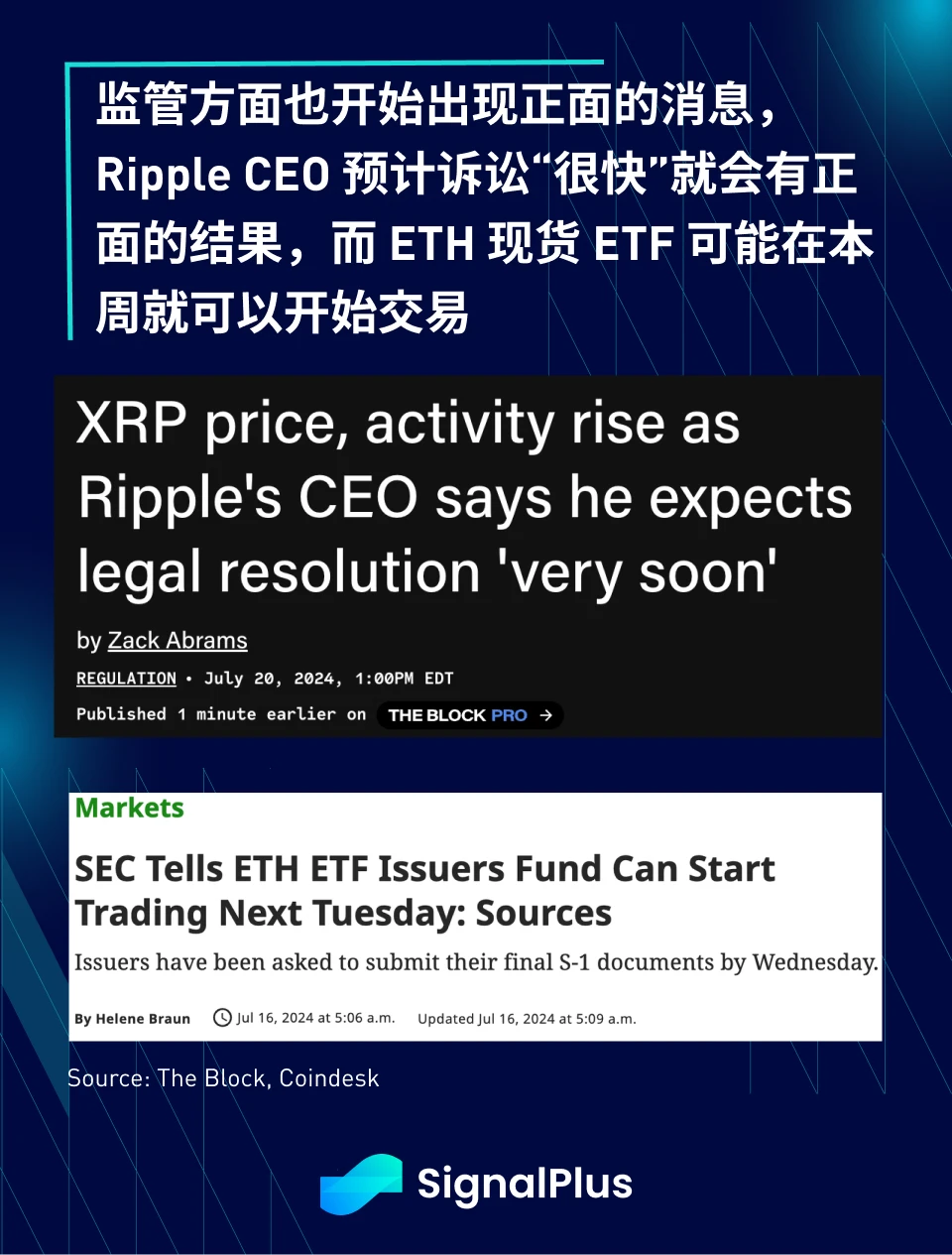
The positive news was also reflected in ETF inflows, which re-accelerated over the past week, exceeding $1 billion.
In terms of market sentiment, the perpetual funding rate is close to flat. As the price returns to the 60-70k range, the implied volatility gradually decreases. However, the market is betting on a rebound at the end of the year, and the positions of BTC 100k call options at the end of the year have increased significantly. Will this bet be successful? Let us wait and see.
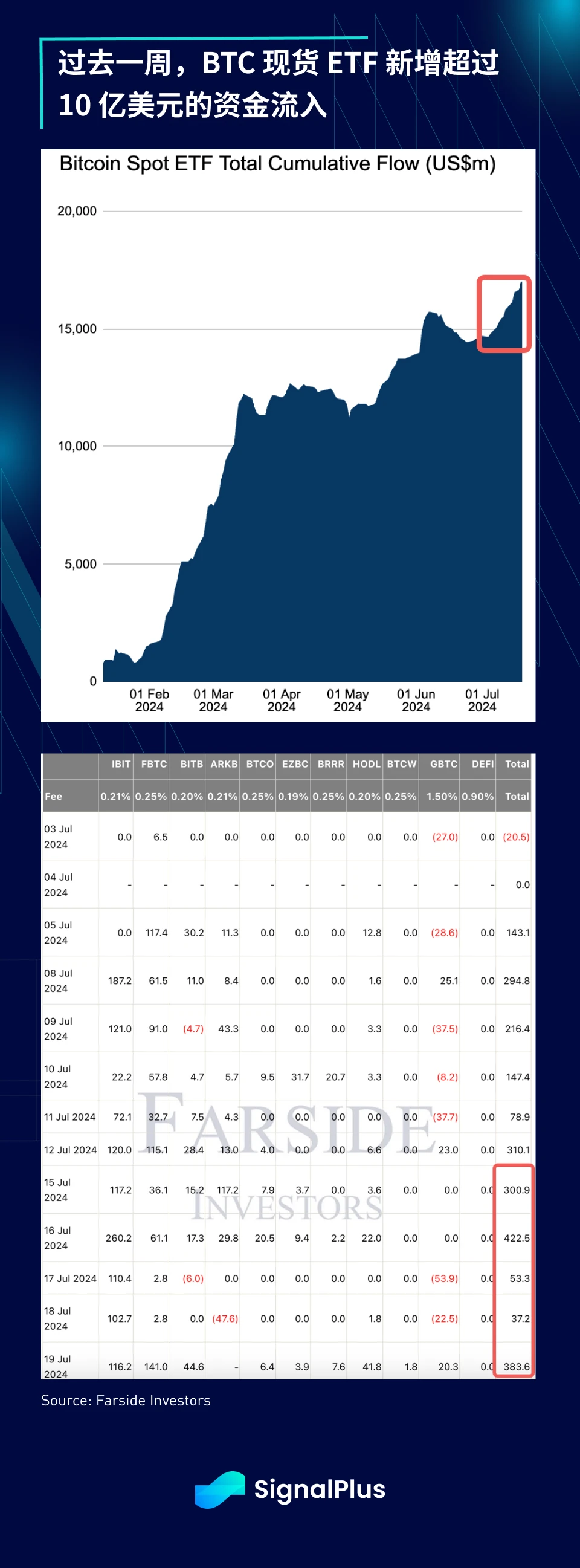

You can search for SignalPlus in the Plugin Store of ChatGPT 4.0 to get real-time encryption information. If you want to receive our updates immediately, please follow our Twitter account @SignalPlus_Web3, or join our WeChat group (add assistant WeChat: SignalPlus 123), Telegram group and Discord community to communicate and interact with more friends. SignalPlus Official Website: https://www.signalplus.com










